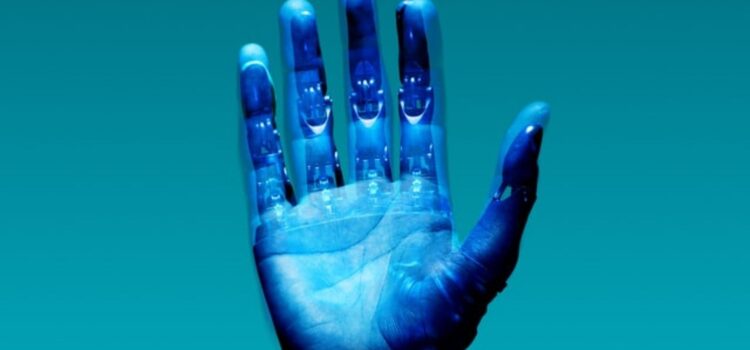

This article is an excerpt from the Shortform book guide to "Homo Deus" by Yuval Noah Harari. Shortform has the world's best summaries and analyses of books you should be reading.
Like this article? Sign up for a free trial here .
What is transhumanism? How will transhumanism impact the future of mankind?
Transhumanist ideas abound in sci-fi literature and cinematography. But what is transhumanism exactly? Transhumanism is a philosophical movement, the proponents of which advocate the upgrading of the human mental and physical form with the use of technology.
Keep reading for the answer to the question: what is transhumanism?
What Is Transhumanism?
Transhumanism maintains many traditional humanistic beliefs but accepts that Homo sapiens have no place in the future. Because of the rate of advancement with artificial intelligence, transhumanists believe that humanity must focus on upgrading the human mind if it wishes to compete with advanced external algorithms.
Over 70,000 years ago, the Cognitive Revolution caused minor shifts in the minds of Homo sapiens, transforming them from African apes into the dominant force on the planet. Techno-humanists believe another transformation is due, this time using technology to make adjustments.
The techno-humanist perspective is most closely related to the evolutionary humanists of the 20th century. However, where evolutionary humanists such as Hitler believed the superior human could only emerge through the use of selective breeding and the eradication of “inferior” beings, techno-humanists strive to achieve the next phase of evolution peacefully, using genetic engineering, human-computer integration, and nanotechnology.
The Human Traits of the Future
Historically, human traits have evolved naturally through changes in political and social settings. For example, ancient humans likely had an enhanced sense of smell they could use to hunt. However, modern humans no longer require a keen sense of smell to survive. Because of this, the areas of the brain that were once used to process smells have evolved to focus on problem solving, critical thinking, and comprehension.
In the future, humans will likely continue to evolve according to political and social needs, but in a more direct and immediate way. If techno-humanists are able to upgrade humanity, the people in charge of the technology will get to determine which traits are useful and which aren’t, then develop technology to improve or eradicate certain feelings or behaviors.
For example, the use of attention helmets may allow for calm and quick decision-making but may eliminate empathy and patience in the process. If the military requires soldiers to wear these helmets, they could create an efficient but unfeeling force.
If techno-humanists manage to “upgrade” society, humanity may lose the very things that made it excel in the first place: ambition, creativity, and connection. For example, if human beings discover a way to connect the human brain to the internet, people may stop interacting with one another altogether, attaching to a truly “always-online” world.
This has already started in the 21st century, with people spending more time on platforms such as Instagram than interacting directly with others. Despite having access to more tools to connect than ever before, people struggle to build relationships and pay attention. On top of the loss of connection, people seem to spend less time dreaming about lofty goals and more time engaging with the distractions of the digital world. With this in mind, imagine what would happen if the digital world existed not only on your phone, but also in your mind.
Threats to Techno-Humanism
Because techno-humanism is a humanist movement, it emphasizes the importance of human desire. According to techno-humanists, the areas of the brain that humanity will upgrade will be determined by individual human desire, or the “inner self.”
However, technological progress intends to control human desire, not listen to it. For example, if researchers discover a way to easily regulate chemical imbalances in the brain, they could find a way to “turn off” mental issues such as depression and anxiety. However, if this technology fell into malicious hands, someone—or something—could hypothetically create an obedient (but happy) populace.
Human beings have already started to manipulate the brain in this way, using pharmaceuticals to change its chemical makeup. For example, if a successful businesswoman feels “distracted” by feelings about starting a family, doctors can give her Ritalin to help her focus and shut out the “unwanted” thoughts. While the woman may make the initial decision to start the drug, her decisions while on the drug will be influenced by the new chemical balance in her brain.
This leads to a series of questions that may threaten the humanist aspect of the techno-humanist agenda:
Question #1: Does the “inner self” actually exist, or is it simply the result of electro-chemical reactions?
If the concept of the “inner self” dies, humanism dies, killing the techno-humanist movement in the process. For example, a person may believe that their “inner voice” is telling them to quit their job because they’re unhappy. They do so and move to a different job, only to find that they’re still unhappy. In reality, the chemicals in their brain are unbalanced, causing severe depression. Did the person leave the job because they listened to their “inner voice” or because of the chemicals in their brain?
Question #2: If there is an “inner voice,” how does it differentiate between “good” and “bad” feelings?
How do human beings determine which traits to amplify and which to silence? Some “unpleasant” feelings are necessary for survival while some “pleasant” feelings are dangerous when left unchecked. For example, a devout Christan man who’s struggling with his sexuality may believe that being gay is a “bad” feeling. If the technology exists, he may go to the doctor to be “cured” of his homosexual feelings. However, if the doctor happens to be a very attractive man, he may ask the doctor to make it so he never feels the urge to be straight again. In this situation, which of his requests came from his “inner voice”? Did he succumb to temptation in the moment or was he overcoming theistic brainwashing?
Question #3: What happens when technology advances to the point that it can shape human desire on its own?
If advanced algorithms manipulate the feelings and desires of humans, who’s actually making the decisions on what areas of the brain should be upgraded, and what areas can be left to wither away? For example, if an AI controls a chemical regulator in your brain, the AI may choose to make you feel satisfied all of the time, killing your ambition in the process. Even if you had control over the chemical balance via an app or online system, you would never be tempted to change the settings because you’d live in a constant state of euphoria. Who, then, is shaping your innermost desires and wants? You or the AI?

———End of Preview———
Like what you just read? Read the rest of the world's best book summary and analysis of Yuval Noah Harari's "Homo Deus" at Shortform .
Here's what you'll find in our full Homo Deus summary :
- Why technology is replacing humanist ideals
- How previous generations relied on prayer to deal with serious problems
- How AI and algorithms are going to run the world






